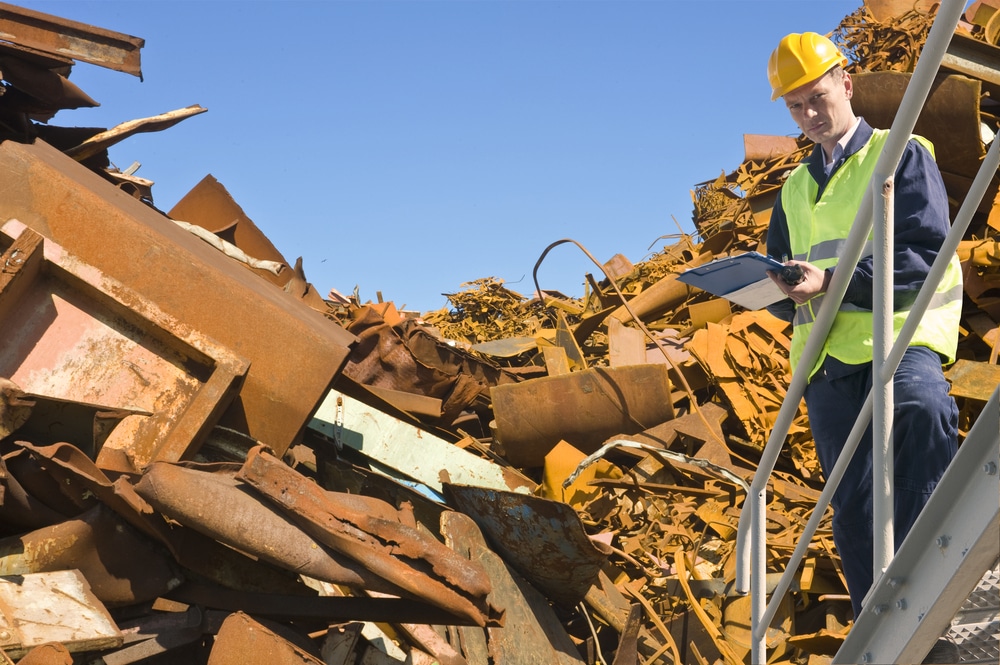The Innovations Of Civil Engineering In Waste Management
 Do you want to work in an environment that not only pays well but holds a great deal of responsibility? Consider becoming a waste management engineer! As a waste management engineer, your job would be to find ways to decrease the amount of waste generated by a community, how to dispose of existing waste efficiently and safely, and find ways to recycle and reuse waste. Here’s everything you need to know about becoming a waste management engineer!
Do you want to work in an environment that not only pays well but holds a great deal of responsibility? Consider becoming a waste management engineer! As a waste management engineer, your job would be to find ways to decrease the amount of waste generated by a community, how to dispose of existing waste efficiently and safely, and find ways to recycle and reuse waste. Here’s everything you need to know about becoming a waste management engineer!
Education and Certifications
The first step to becoming a waste management engineer is to earn a bachelor’s degree in environmental engineering, civil engineering, or a related field. Once you earn your degree, you can gain valuable experience through internships or volunteer work. Some employers may prefer candidates with a master’s degree in engineering or a related field, which will take an additional two years.
After gaining the requisite education, you will have to earn a Professional Engineering (PE) license from the National Council of Examiners for Engineering and Surveying (NCEES). You will have to pass their Fundamentals of Engineering (FE) exam and the Professional Engineering (PE) exam in order to become licensed. This license is required to directly oversee other engineers, sign off on designs or constructions, and work as a consultant.
Job Description
Now that you know how to become a waste management engineer, let’s take a look at what a typical day on the job would look like!
Tasks
A waste management engineer is responsible for:
- Designing, developing, and supervising systems and equipment for managing and disposing of waste
- Providing technical support and advice to clients
- Ensuring compliance with environmental regulations
- Conducting waste research
Working Hours and Conditions
Waste management engineers typically work 40 hours a week in office settings, labs, or outside on construction sites. This job also involves travel to different locations, depending on the clients and projects.
Salary and Outlook
The median annual salary for a waste management engineer is $84,890, and the field is expected to grow by 5% between 2018 and 2028, which is as fast as average for all occupations.
FAQs
What skills are required to become a waste management engineer?
Some of the skills required of a waste management engineer include excellent communication, problem-solving, analytical thinking, and project management.
What is the work environment like for waste management engineers?
Workplaces for waste management engineers can range from construction sites and landfills to university labs, offices, and even government agencies. Some engineering firms may have their own waste management unit, and others might be contracted by waste management companies or environmental agencies.
What are some of the challenges of being a waste management engineer?
One of the biggest challenges of being a waste management engineer is working with hazardous waste that can be dangerous if not managed properly. You will also face pressure from bureaucrats, communities, and environmental organizations, who may all have different expectations and regulations. Nevertheless, this job holds a great deal of environmental and social responsibility, and can be extremely rewarding.
What’s the difference between a waste management engineer and a sanitation engineer?
While both fields are related to waste management, sanitation engineers focus specifically on public sanitation services, like garbage collection, disinfection, and waste disposal. Waste management engineers also deal with commercial and industrial waste, recycling, hazardous waste, and environmental regulation compliance.
What are some of the technologies used by waste management engineers?
Waste management engineers use a variety of technologies including eco-friendly waste reduction systems, landfill gas energy, pyrolysis, waste-to-energy incineration, and various treatment processes.
Conclusion
Becoming a waste management engineer is a challenging and highly rewarding career that offers plenty of job opportunities, competitive salaries, and the satisfaction of knowing that you are contributing to a more sustainable future. So if you are interested in a career that involves critical thinking, environmental responsibility, and technical challenges, then consider becoming a waste management engineer today!


Post a Comment for "The Innovations Of Civil Engineering In Waste Management"